The other day I posted about burying the Alleluia on Septuagesima Sunday. As Pre-Lent (aka Fore-Lent) begins, in the traditional Roman Rite we sing the Alleluia for the last time at 1st Vespers of Septuagesima. There was a custom of yore of burying the “Alleluia” as if to entomb it until the Sunday of the Resurrection, Easter.
Our Alleluia and its coffin was made by a great family in the parish.
At the time of the Asperges, it got splashed with a little holy water.
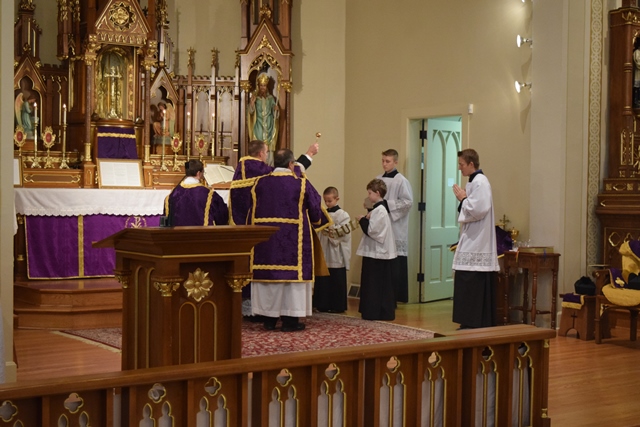
 Off we go… outside… into a side door… down into the undercroft or “crypt” which has a dirt floor.
Off we go… outside… into a side door… down into the undercroft or “crypt” which has a dirt floor.
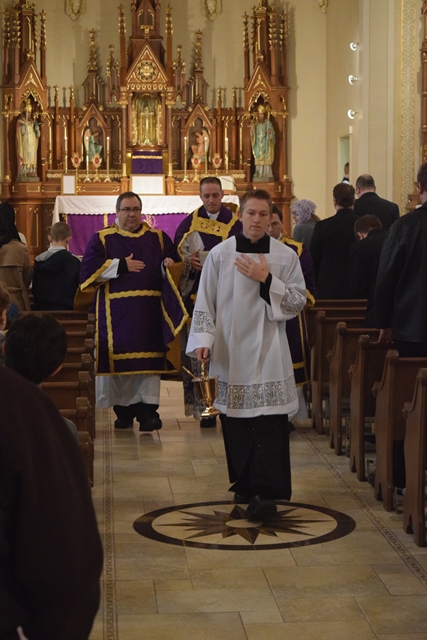
Father puts Alleluia into its not-so-final resting place.
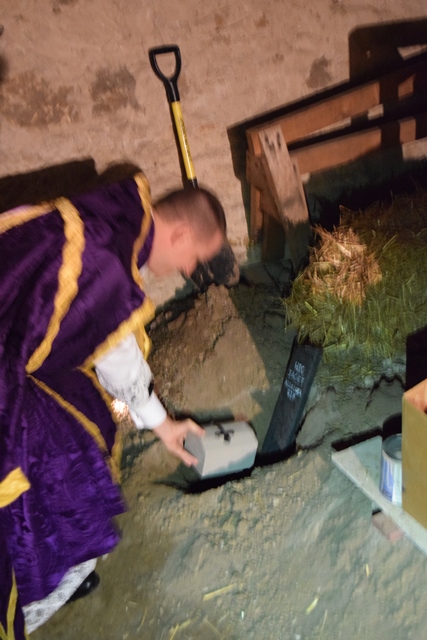
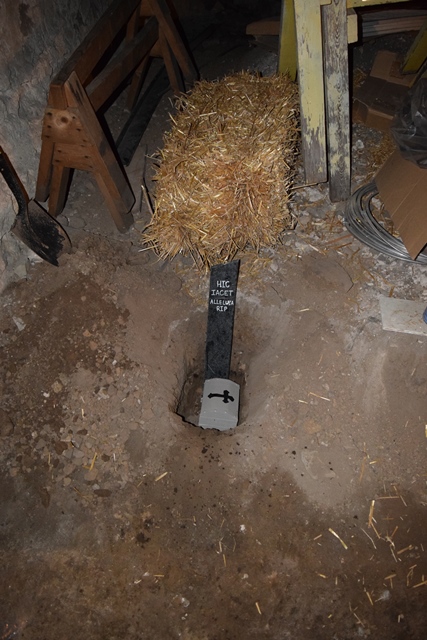
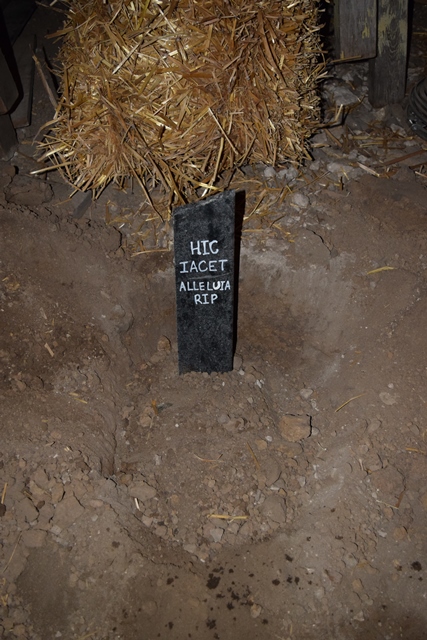
Back into church for Mass. It happened to be the first time our celebrant, who is the Vocations Director of the diocese for the Extraordinary Ordinary.
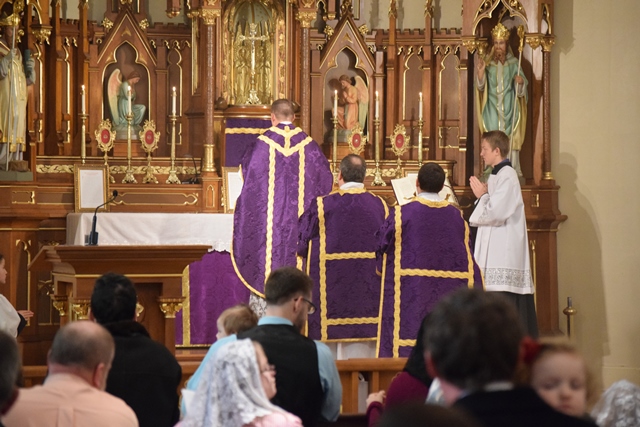
So… the Alleluia is buried for Pre-Lent, Lent, Passiontide and the Sacred Triduum.
UPDATE 14 Feb:
I received some photos from the wonderful Marian Sisters of Santa Rosa.
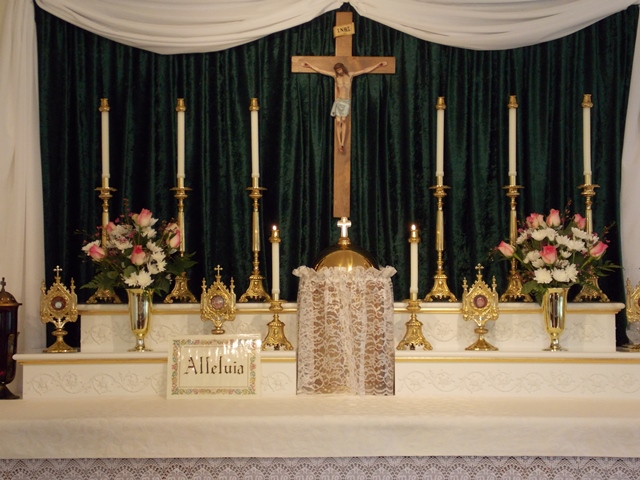
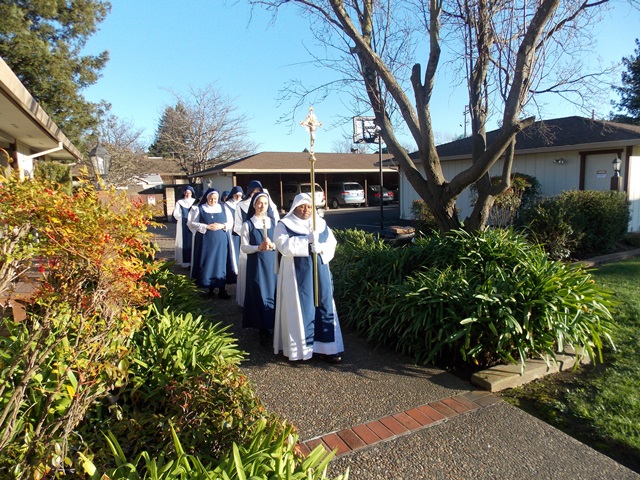
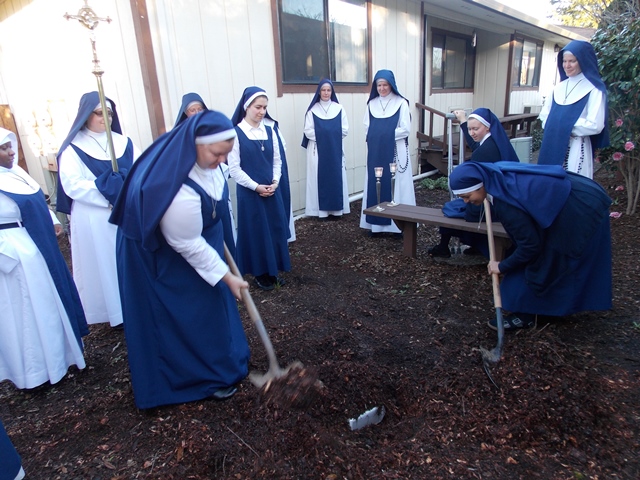
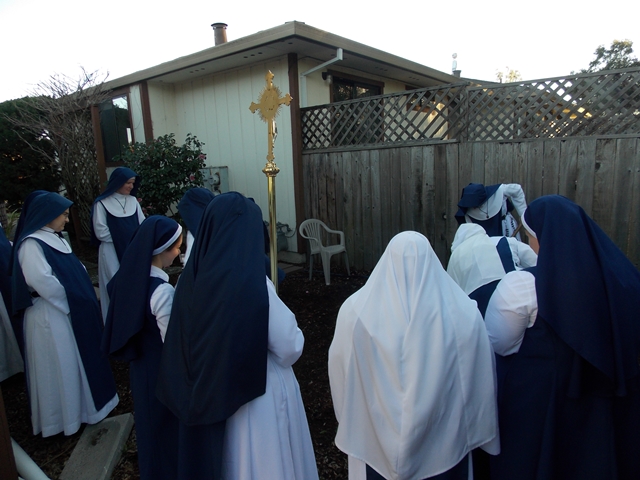
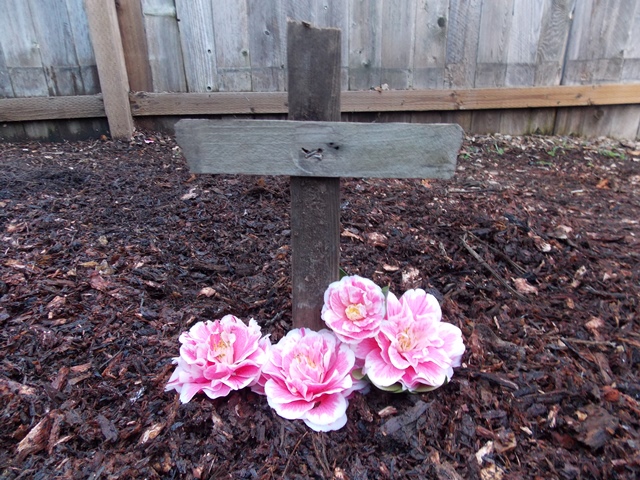

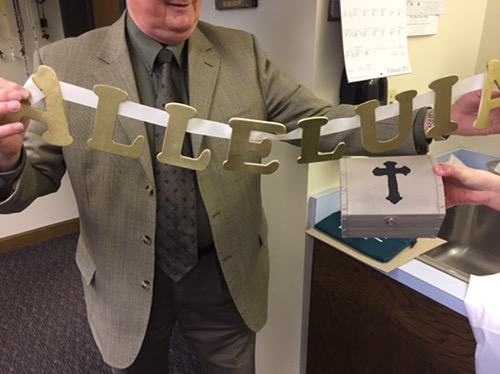





























I am not an expert in the Extraordinary Form, but should there not have been an assistant priest vested in a cope if this was a First Solemn Mass? Was this a priest who was familiar enough with this form? Or was the assistant priest dispensed with because rubrics no longer matter in this Age of Mercy?
[The celebrant, whom I described as being the Vocations Director for the diocese, is not saying a FIRST MASS. This is the first time he sang a Solemn Mass in the Extraordinary Form. How is it that you imagined a newly ordained priest would be appointed as the Vocations Director?]
@Discerning
No, the AP is only used for a newly-ordained priest’s first few Masses. This particular priest has celebrated the EF Low Mass and Missa Cantata many times; it was just finally his first time as the celebrant for a Solemn Mass.
Francis Mershman’s Septuagesima article in the old Catholic Encyclopedia led me to this section in Guéranger with a variety of historical Latin texts – with English translations:
https://archive.org/stream/V04TheLiturgicalYear#page/n121/mode/2up
and to Daniel Rock, who led in turn to an Old English gloss on one of the Latin hymns:
https://archive.org/stream/latinhymnsanglo00stevgoog#page/n70/mode/2up
I’m sorry Father, as I said, I am ignorant of the Older Form. My diocese is not very up on these things. I thought it was for any priest’s first Solemn Mass. I will refrain from commenting with doing relevant outside research.
[Not to worry! o{]:¬) ]
We also had a recent TLM celebrated by the vocations director of our diocese. It occurs to me that it would be salutary–and exemplary for his seminarians–for every diocesan vocations director to be able to celebrate Mass in both the OF and the EF form.
[Well said. I would add that every priest of the Roman Church should be able to say both forms. After all, if a priest doesn’t know the Extraordinary Form then he is only partially trained. Moreover, at ordinations somebody has to stand up and attest that the men are properly prepared. But are they if they don’t know their own Rite?]
I endorse Henry Edwards’ suggestion.
Checking YouTube to see if there happened to be a recording of anyone chanting Alleluia Dulce Carmen (alas, no), I encountered J.M. Neale’s version – I wonder if Professor Esolen attends to it, in Real Music?:
https://www.youtube.com/watch?v=N347uXQ6QBo
Venerator Sti Lot says: Alleluia Dulce Carmen
We had that today for the procession out of Church!
What wonderful photos!
@Venerator Sti Lot: Thank you for the great links! I have to read through the first one ASAP.
I do recall seeing the burying of that word once though it wasn’t actually buried in the ground. I would be careful about getting those vestments dirty! It looks like a wonderfully celebrated Mass. I am also curious on what specific date that word gets buried next year? Finally, how does one learn about some of these traditions of yester year? any good sources?
@Henry Would a priest knowing only the Extraordinary Form be considered only partially trained as well?
DiscerningAltarBoy, the answer is no.
It’s called the usus antiquior for a reason.
If someone can drive a car with a manual transmission, they can certainly drive one with an automatic. It’s not always true the other way round. Tradition supercedes a forty-seven year old innovation. What was once true is always and everywhere true.
@acardnal: ;D I also like the Latin of St. Cyprian that could be analogously applied: “Consuetudo sine veritate vetustas erroris est”.
Discerning Altar Boy: “@Henry Would a priest knowing only the Extraordinary Form be considered only partially trained as well?”
Any priest knowing the EF could (with no additional training) easily celebrate the OF if he wished. Indeed, I recall a remark in a previous thread to the effect that any reasonably attentive 13-year old altar boy could celebrate an OF Mass as well as frequently seen (perhaps with 5 minutes of additional instruction if necessary).
Though a traditionally trained priest may not wish to celebrate the OF. I once heard one such say that, while he didn’t question the validity of the OF, he wanted offer God the very best he could each time he celebrated Holy Mass, and that was the EF.
Fr. John Zuhlsdorf ,
Thank you! (I was quietly wondering about the possibility…)
Lucas Whittaker (et al.),
While I was searching for this volume of Guéranger in English, I got the impression that the Internet Archive had scans of all the volumes – something well worth following up! (It looked like all the French originals were there, too!)
ChesterFrank, Septuagesima Sunday next year is on January 28th.
@Venerator Sti Lot: We should–a group of us–get together and have a votive Mass in honor of Prosper Gueranger. Maybe the votive Mass for the propagation of the faith with the collect taken from Justus ut palma (of a confesssor not a bishop): Adesto, Domino (minus the beati, of course). The Mass for the propagation of the faith is appropriate for this liturgical season; the gospel is especially fitting for our times (Mt 9:35-38; reading, in part: Et circuibat Iesus omnes civitates … Videns autem turbas, misertus est eis: quia erant vexati, et iacentes sicut oves non habentes pastorem.) Yes, as a matter of fact, I do have a majority of British DNA, with my sense of humor demonstrating 100% DNA from the UK. At the end of the Mass we could pray for the repose of the soul of Dom Prosper Gueranger. Mrs. Whittaker and I would be willing to drive to the Madison diocese and get a motel for the night . . .
Lucas Whittaker,
Yes, what a lot to be grateful and well-willing for! (Also to his translators, for those of us whose French is next to non-existent!)